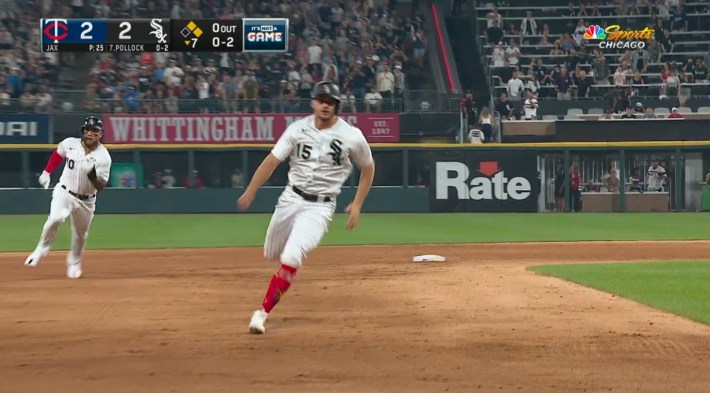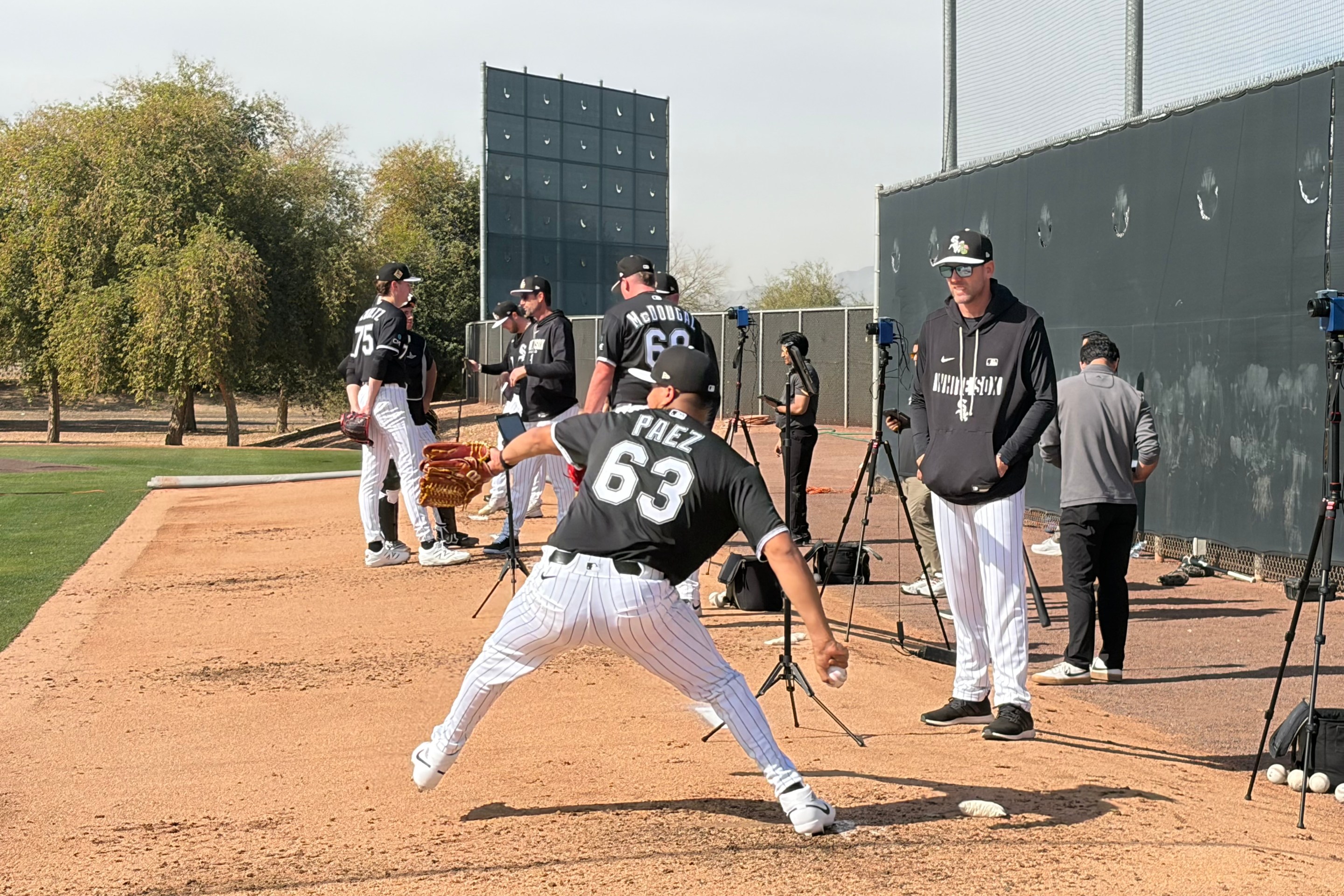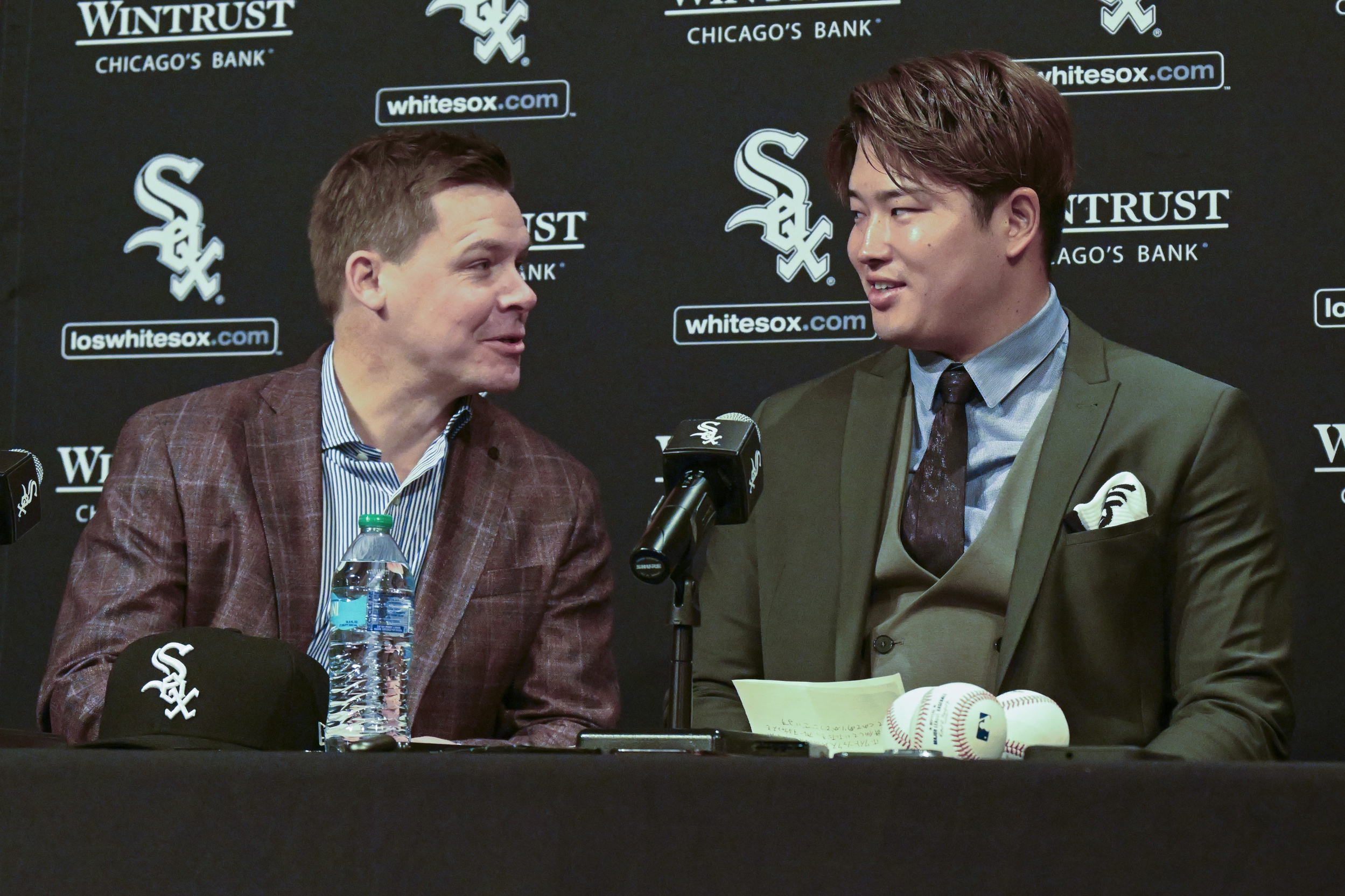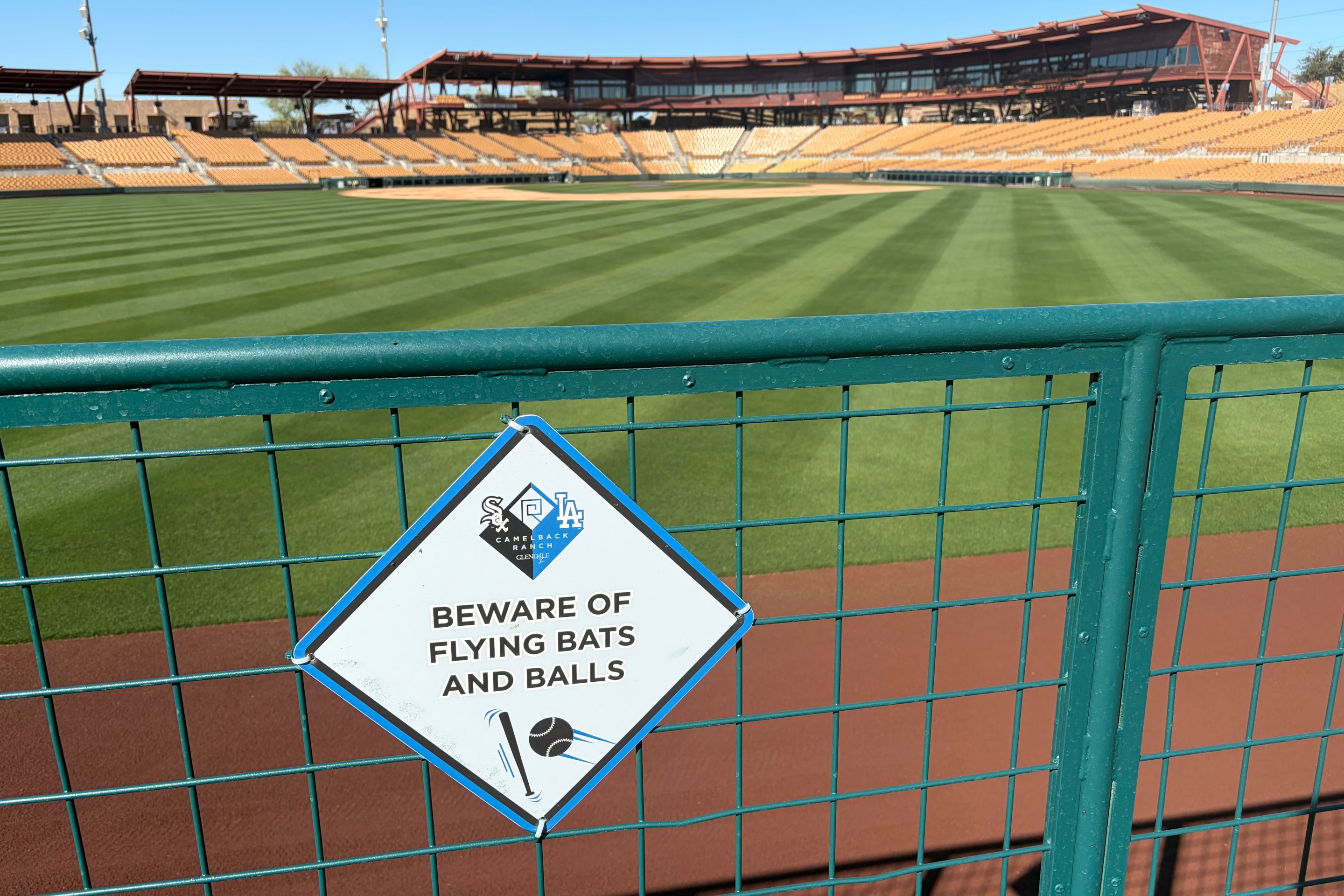It was only a year ago that the idea of compiling the traditional list of the White Sox's worst losses seemed pointless. Sure, some of their 69 losses in 2021 were uglier than others, but if Hawk Harrelson is right that every team wins 60 and loses 60, then there were only nine games to choose from, and that doesn't even cover the margin of error in a division they won by 13.
I still went through and singled out the more painful losses for the sake of posterity and record-keeping, but unlike other years, it wasn't needed for exorcistic purposes. Everybody can agree that the three worst losses of the season all occurred in the postseason over a four-game series to the Houston Astros, which is how it should be.
Welp, it only took one year for this post to roar back to relevancy, so much so that I've flipped the order.
I usually sort through the season's best wins because those games, not the White Sox's rich history of postseason appearances, are why we all keep coming back. In an average White Sox season, we all know why they didn't advance into October, so we may as well start with the crowd-pleasers when we can control the satisfaction.
Giving those games the priority when reviewing the 2022 season would feel dishonest. This year was defined by the oppressive nature of the White Sox's 81 losses. They were seldom simply outplayed, in the sense that their nine (or 10) couldn't keep up with the other team's nine (or 10). They were simultaneously out-thought and out-efforted, and oftentimes it was hard to determine the leading cause of death.
Anyway, here's a list of 10 games that stood out to me as particularly painful losses. They're not quite the 10 worst losses, because it includes four other companion games that received "companion game" status as an inferior version of the same type of loss. If you're a stickler for order, No. 10 is more like Nos. 13-14, but I prefer to celebrate the variety we witnessed.
No. 10: Rangers 11, White Sox 9 (10 innings) on June 11
The game that inspired the first of many noticeable "FIRE TONY" chants, as the White Sox blew leads of 5-0 and 7-4 with a five-reliever effort that included neither Liam Hendriks, Kendall Graveman nor Aaron Bummer, because all were unavailable. Also, Yasmani Grandal strained his hamstring running down the first base line after a 2-for-2 performance that extended his hitting streak to a season-high five games, and he missed the next six weeks. There were so many games where the White Sox competed with 23-man rosters, and they weren't nearly good enough to go long on shorthandedness.
Companion game: Rangers 8, White Sox 6 the next damn day. Michael Kopech departed after two outs due to a pop in his knee, and Johnny Cueto pitched five terrific innings of relief on zero notice, and the Sox scored six runs thanks to a generous Texas defense, but they still lost.
No. 9: Diamondbacks 3, White Sox 2 on Aug. 28
Dylan Cease and Kendall Graveman combine to allow three hits, but all three of those hits came around to score as the White Sox lose the only winnable game in a costly sweep at the hands of the Snakes.
This loss originally didn't make my top 10 because the Sox have been shut down by ordinary righties (Kyle Davies here) and lost due to inexplicable control lapses (Graveman walked two, but he had a worse game below).
But then I realized that it was the last game Tony La Russa managed for the White Sox, and one of his last decisions was pinch-hitting an obviously injured Leury García and his .505 OPS for Seby Zavala, who was healthy and better. It took weeks to learn that La Russa was done for good, but he made sure to go out with one last blast of dubious reasoning.
No. 8: Guardians 11, White Sox 1 on April 20
We wasted no time learning that Dallas Keuchel would not be able to survive on a team with such shoddy defense. The White Sox committed four errors behind Keuchel, who became just the second pitcher in franchise history to give up 10 runs while recording just three outs.
The only question was whether Keuchel would be able to survive anywhere, but his results were even worse in subsequent stints with Arizona and Texas. He gave up 47 runs over 42 innings in the final year of his three-year, $55.5 million contract.
Companion game: Astros 13, White Sox 3 on June 17. The Sox had a worse inning in Houston, giving up 10 runs in the sixth inning of what had been a tied game. Also, shoutout to one of Joe McEwing's terrible sends.
No. 7: Rockies 6, White Sox 5 on July 27
Graveman was tasked with closing out a 5-4 game at Coors Field because while he and Liam Hendriks both pitched the night before, Graveman cruised through his inning, while Hendriks labored through 26 pitches due to recurring problems with altitude sickness.
Alas, Graveman had problems all year with working on consecutive days, and this one turned everybody's stomachs. Over the course of just 18 pitches, he walked the bases loaded and gave up a two-run single to blow the game without recording an out.
His spectacular meltdown overshadowed a few boneheaded moments elsewhere, like Leury García getting picked off third on a bases-loading walk to Yoán Moncada, and Tim Anderson bypassing a 6-4-3 double play for a 6-3 putout because he missed second base when trying to take it to the bag himself.
No. 6: Twins 6, White Sox 3 (10 innings) on July 4
I'm going to save myself some words merely by saying "8-5 triple play" and posting this cursed image.

More on Adam Engel's role in this later.
Companion game: Twins 2, White Sox 1 on April 22. The White Sox went from leading 1-0 to losing 2-1 on a double error between Tim Anderson and José Abreu, who capped off the game's defining play by hustling gloveless after a ball in foul territory and panicking a wild throw home to score the go-ahead run.
PERTINENT: Failing to understand -- then understanding the failure -- of the 8-5 triple play
No. 5: Guardians 10, White Sox 7 (11 innings) on Sept. 20
This game is only on the list because it effectively extinguished whatever hopes the White Sox had left. It wasn't for a lack of trying, and while they made some mistakes, they were able to atone for them in regulation, sometimes sensationally. They just didn't have enough.
No. 4: Tigers 5, White Sox 4 (10 innings) on April 8
AJ Pollock went 3-for-5 with a double in his White Sox debut on Opening Day. Then he got stuck against the wall and couldn't get his glove up in time to catch Javier Báez's game-winning hit off the right-field wall to cast immediate doubts about his defense and cause Liam Hendriks to take the loss on top of the blown save he suffered for giving up a game-tying homer the inning before.
Then Pollock got hurt the next day. Then he came back without a rehab stint and posted a .672 OPS while playing only six other complete games in right field the rest of the way.
I almost forgot: Lucas Giolito departed after four one-hit innings with an abdominal strain. His fastball averaged 93 back then.
No. 3: Dodgers 11, White Sox 9 on June 9
This was the game where Tony La Russa called for the first of two intentional walks on a 1-2 count, forfeiting the advantage Bennett Sousa held over Trea Turner in hopes of winning a lefty-lefty matchup against Max Muncy.
Muncy promptly hit a three-run homer, and La Russa defended it vehemently enough that no assistance was needed. Which was good, because nobody else could defend it.
The intentional walk overshadowed a meltdown by Dylan Cease, who threw 45 pitches during a six-run Dodger fifth. La Russa left him in because it was his inning.
Companion game: Guardians 5, White Sox 2 on Aug. 19. The other game where La Russa called for an intentional walk on a 1-2 count, only because he stuck with Jake Diekman batters too late already. Also, Triston McKenzie joined Pedro Martinez and Nolan Ryan as the only pitchers to strike out 14 White Sox without walking one, and Eloy Jiménez left the game with a twisted knee, the severity of which NBC Sports Chicago's postgame show doubted.
No. 2: Orioles 4, White Sox 3 (11 innings) on Aug. 25
Among the reasons Rick Hahn should be humiliated for the White Sox's showing in 2022 is the fact that they finished with a worse record than the Baltimore Orioles, who didn't even try to add over the winter. Despite a payroll that was only 30 percent of what the White Sox spent, the O's finished ahead of the Sox in the American League wild card race by two games at 83-79.
This game represents that difference in the standings. Adam Engel dropped what should've been a game-ending foulout down the left-field line, but Kyle Stowers turned his second life into his first career homer off Liam Hendriks to tie the game.
This was the second time Engel spectacularly failed at his One Job. In the aforementioned triple play game, he entered as a pinch runner. Here, he was a defensive replacement. These moments won't be the leading reason why he's staring down the barrel of a non-tender, but I'd understand it if it drove the White Sox to move on just the same.
Adding injury to injury, this was the game that Luis Robert looked so pained in the batter's box that even the Pitching Ninja felt remorse. This is what I mean when I say the White Sox seldom were outmatched by the opponent, because they were sometimes too much for themselves.
No. 1: Guardians 12, White Sox 9 on May 10, 2022
The White Sox blew a six-run lead in the ninth inning, first with Tanner Banks, and then with Hendriks, but the blame expands wider. Tony La Russa used Hendriks for the sixth time in eight games. The Sox committed four errors, including two in that ninth inning. Yoán Moncada and José Abreu both grounded out with the bases loaded with the game tied in the 10th, and on and on and on. Reynaldo López hurt his back, and Ryan Burr (who everybody forgot pitched for the White Sox in 2022 per Ted's Saturday Sporcle) ended up taking the loss instead.
I don't think the game ruined the White Sox. It just neatly showcased all the ways the White Sox could defeat themselves over the course of three high-leverage innings while making any lead feel unsafe the rest of the way, especially when the Guardians occupied the other dugout.






